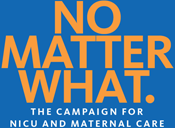Dr. Michael Sgro
Chief of Pediatrics
It’s been a couple of decades since Dr. Michael Sgro’s two sons were babies, but St. Michael’s Chief of Pediatrics summons up that memory every time he talks to young parents.
“When you have an infant, you can be exhausted and overwhelmed,” he says. “As a parent, I can appreciate what they’re going through.”
Even before he had children of his own, Dr. Sgro went the extra mile for his little patients. As a resident on the night shift, he would use his breaks to sit at the bedside of a nine-year-old boy hospitalized for leukemia.
“Sometimes he would be with nobody,” says Dr. Sgro. “I still think about him.”
While Dr. Sgro’s profound sense of empathy is never far from the surface, he’s also a tough-minded researcher. He has dedicated his career to fighting a trio of debilitating neonatal illnesses – severe jaundice, fetal alcohol spectrum disorder and blood infection.
At St. Michael’s Li Ka Shing Knowledge Institute, Dr. Sgro has carried on life-changing research for sick babies. He and Dr. Doug Campbell, director of St. Michael’s Neonatal Intensive Care Unit, for instance, developed more stringent protocols for catching jaundice early. It has meant better prevention of possible brain damage in countless babies.
He is also part of a research team tracking babies born to mothers who drank excessively during pregnancy. The scientists want to figure out what makes a baby more or less likely to develop fetal alcohol spectrum disorder.
And in one area of his risk-assessment research, Dr. Sgro is looking at which babies are most likely to contract two of the most common and deadly bacteria among newborns. He found that premature babies, those born to moms who had a fever during pregnancy and those born after long labours, are most at risk of Group B streptococcus and E. coli.
“Bacterial infection in the blood of newborns is an extremely serious condition,” Dr. Sgro says. “Without treatment, they may not survive, or may have brain damage.” Which is why he also conducts research showing which strains of these bacteria are most resistant to standard antibiotics, and how best to modify treatment.
He might work on some of the most serious infant diseases, but Dr. Sgro is still an optimist: “The irony is that babies are resilient,” he says. “Most go home well, even the premature ones.”
